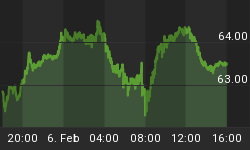Silicon Valley’s Chamath Palihapitiya, the tech investor behind the Social Capital venture firm, is telling clients that the start-up economy is has turned into a sophisticated—and dangerous—Ponzi scheme and the high-stakes losers are employees and limited partners.
In a letter from Social Capital, Palihapitiya notes that “over the past decade, a subtle and sophisticated game has emerged between VCs, LPs, founders, and employees”, and someone has to foot the bill for it as VCs are “smart enough to transfer the risk”.
He compares it to the American healthcare industry, which he says is so expensive because “insurers, who play a key middleman role in setting prices for medical care, have a fantastic two-sided business model”.
“High prices, which out to be a cost of doing business for them, are actually a key revenue driver,” Palihapitiya says.
That’s because high prices make it possible for them to charge high premiums and milk the cow extensively. That keeps the cost of medicine on the steady increase, along with insurance profits. Who’s left holding the bag? Patients and payers.
This is exactly how VCs are operating in the start-up world, he says. They “habitually invest in on another’s companies during later rounds, bidding up rounds to valuations that allow for generous markups on their funds’ performance”. Then, like health insurance companies, that makes it easier for them to generate even larger funds, and nice management fees.
“So even if paying or marking up sky-high valuations will make it less likely that a fund manager will ever see their share of earned profit, it makes it ?more? likely they’ll get to raise larger funds - and earn enormous management fees. There’s some deep misalignment here...,” he wrote.
In other words, just like in the healthcare industry, today’s venture world doesn’t register marked-up valuations as a cost for VCs—rather, they are a key revenue driver and a wide open door to new funds and fees. That also means higher operating costs for start-ups across the board. Related: Analysts See Upside In Energy Stocks
Footing the bill are employees and early-stage limited partners, or future limited partners—the ones who get stuck paying for the hefty management fees.
Here’s where it becomes with Palihapitiya calls a Ponzi “balloon”, with VCs “marking up Fund IV in order to raise money for more management fees out of Fund V, and so on […]”. The VCs are profiting hugely from the management fees long before a start-up is even successful.
And then startup employees are left holding the bag, too, in a much more dramatic way. This is because of the Silicon Valley trend to pay employees in stock options and restricted stock units.
Palihapitiya says it’s time for a change, and a return to the “roots” of venture investing.
“The real expense in a startup shouldn’t be their bill from Big Tech but, rather, the cost of real innovation and R&D,” he writes.
He also thinks it’s time to do away with the “multilevel marketing scheme that the VC-LP-user growth game has become”.
More to the point, he says, it’s time to let the air out of this “bizarre Ponzi balloon”.
By Michael Scott for Safehaven.com
More Top Reads From Safehaven.com:
















